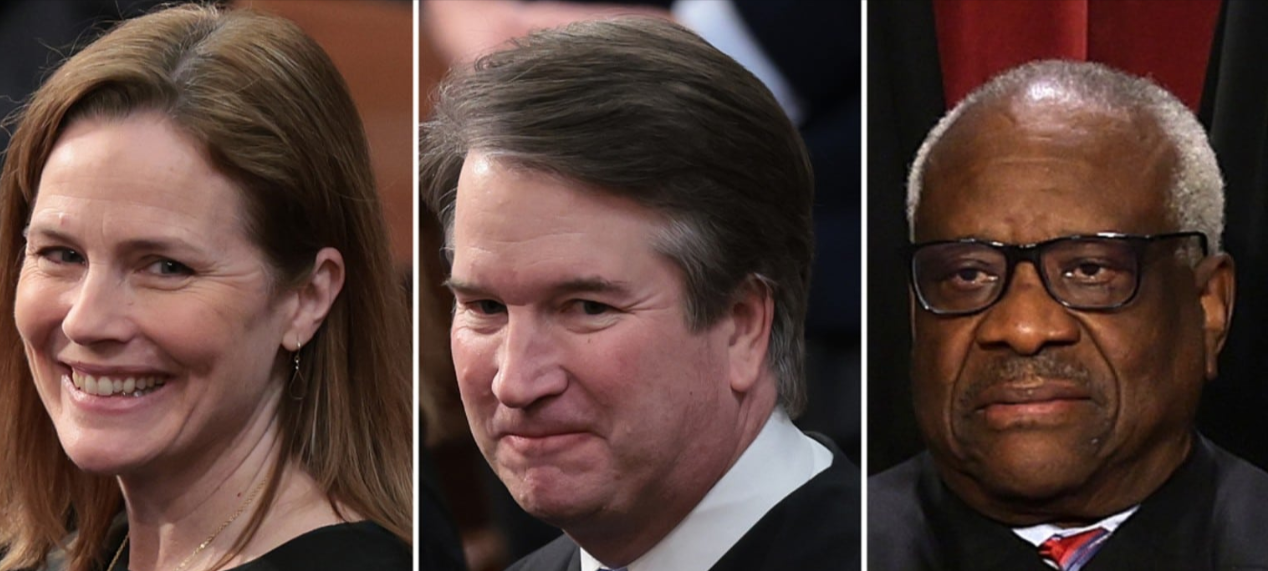Supreme Court Rejects Appeal of Jan. 6 ‘Parading’ Conviction

The Supreme Court on Tuesday declined to review an appeal from John Nassif, a Florida man convicted for his role in the January 6, 2021, Capitol attack. Nassif challenged the constitutionality of the law prohibiting “parading, picketing, and demonstrating” inside the Capitol, arguing that it violates the First Amendment’s protections of free speech and assembly. This statute has become one of the most commonly applied charges against January 6 defendants.
Nassif, 57, received a seven-month prison sentence for misdemeanors including disorderly conduct and violent entry, though prosecutors initially sought a sentence of 10 to 16 months, according to the Washington Examiner. His defense argued that he entered the Capitol nearly an hour after it was breached, stayed for less than 10 minutes, and engaged in behavior they described as “core First Amendment expression” that was “in no way disruptive.”
Lower courts, including the U.S. Court of Appeals for the D.C. Circuit, upheld Nassif’s convictions. The D.C. Circuit ruled that the Capitol buildings are not public forums open for protests, allowing the government to impose reasonable and viewpoint-neutral restrictions for security and order.
“Nassif has not established that the Capitol buildings are, by policy or practice, generally open for use by members of the public to voice whatever concerns they may have — much less to use for protests, pickets, or demonstrations,” the court concluded.
Nassif’s petition pointed to conflicting interpretations of the Capitol’s status as a public forum. While the D.C. Circuit classifies the Capitol as a nonpublic forum with broader permissible restrictions, the D.C. Court of Appeals has treated areas like the Capitol Rotunda as public forums requiring narrower limits on speech.
U.S. District Judge John Bates upheld the parading charge, citing precedent that supports reasonable restrictions on First Amendment activities within the Capitol to prevent disruptions and protect legislative security.
By declining to hear the case, the Supreme Court leaves the lower courts’ rulings in place, maintaining the government’s ability to enforce the parading statute. This decision has implications for over 460 defendants charged with the same misdemeanor related to January 6, the most frequently applied charge among the more than 1,450 prosecuted so far, according to the Department of Justice.
In contrast, recent rulings have narrowed the application of other charges related to the Capitol riot. In United States v. Fischer, the Supreme Court raised the burden of proof for applying the obstruction statute, Section 1512(c)(2). Similarly, U.S. District Judge Beryl Howell set higher standards for applying the obstruction charge in United States v. DeCarlo. These rulings may complicate the DOJ’s ability to use this statute against remaining defendants.
Meanwhile, President-elect Donald Trump has signaled an intention to pardon many January 6 defendants. “I am inclined to pardon many of them. I can’t say for every single one because a couple of them, probably, they got out of control,” Trump has stated.
Of the more than 1,450 individuals charged, nearly 600 face allegations of assaulting, resisting, or impeding law enforcement officers. The most severe sentences have been reserved for high-profile figures like Stewart Rhodes, founder of the Oath Keepers, and Enrique Tarrio, leader of the Proud Boys. Both were convicted of seditious conspiracy and other felonies for orchestrating the events of January 6, despite not directly participating in violence inside the Capitol.